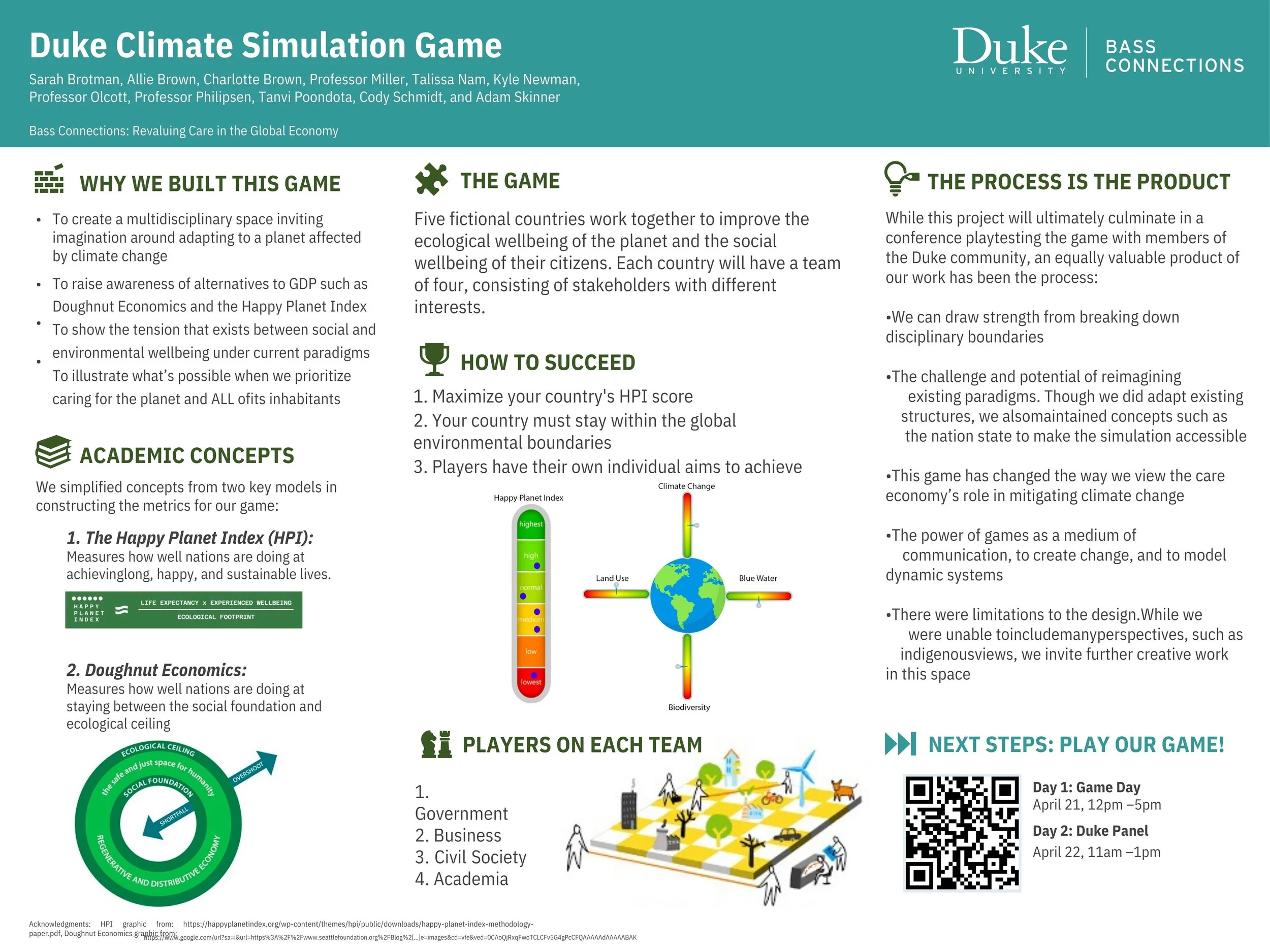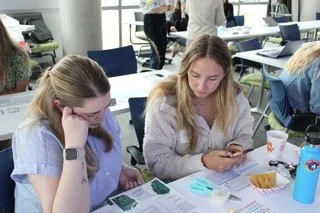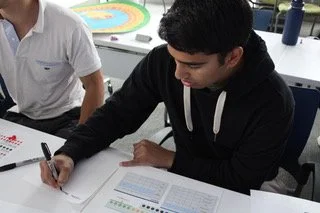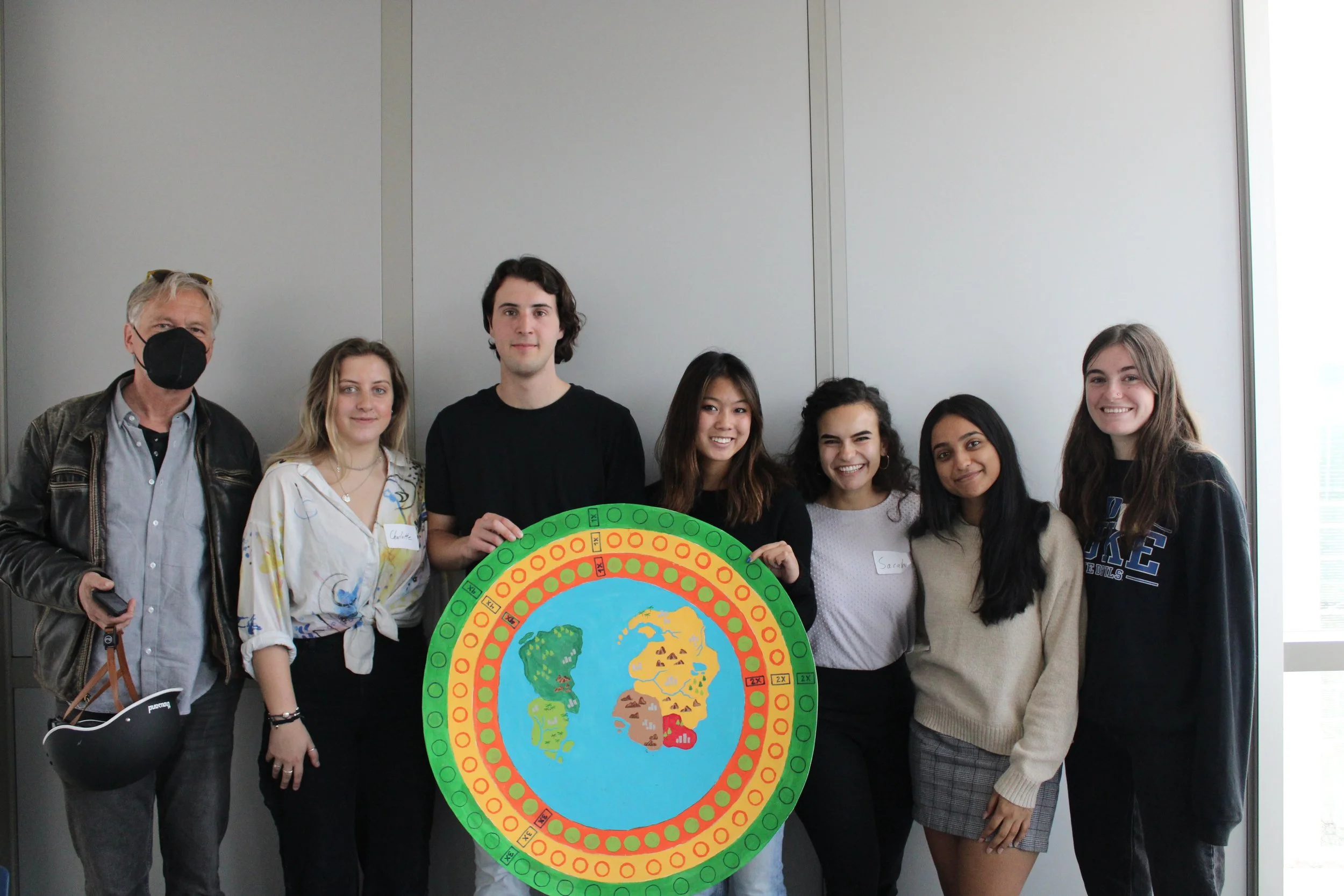Duke Climate Simulation Game
Duke Bass Connections: Revaluing Care in the Global Economy
Duke’s Bass Connection, “Revaluing Care in the Global Economy,” was a research project focused on confronting the prevailing “crisis of care,” highlighting the growing demand for care globally and its crucial role in sustaining both our ecosystem and societal well-being, two interrelated topics. Through examinations of “care economies” in Durham, an integrated system of prioritizing human, cultural, and environmental factors, the project aims to comprehend this region's interdisciplinary economic, environmental, and policy achievements and hurdles. The team further contributed to this understanding by drawing on economic models such as Doughnut Economics and the Happy Planet Index (HPI) to advocate for more inclusive ways of assessing national economies that account for essential contributions of care. Ultimately, this research project aims to cause a rift in consumerist cultures and push toward a social economy that values care for humans and, importantly, the environment.
Learn more about this research project here: https://bassconnections.duke.edu/project-teams/revaluing-care-global-economy-2021-2022
I took part in this research project as a part of the Duke Climate Simulation Game Team. I joined the project in Spring 2022 as a game designer, working with a diverse group of students to translate the broader, abovementioned research into a playable educational game for high school and college-aged students.
The game operated as a simulation in which players broke into teams and assumed different countries. Players were then designated specific roles and tasks within their given country with the aim of influencing HPI—the metric for a country’s balanced economic, environmental, and social attentiveness to this concept of “care.”
My role within the project involved working with interdisciplinary students to ensure ideas were passed smoothly and converted into effective game mechanics. This reality involves incorporating player-friendly mechanics and advocates for simplicity to enhance game understanding. Despite initial reluctance to simplify, this ultimately proved successful in later playtests, fostering greater collaboration and meaningful dialogue compared to early playtests, where players were often confused and disinterested in the game. Further, I worked alongside the team in other aspects, including acting as a liaison with other research groups, marketing playtests and events, and, at times, working independently on developing specific aspects of the game, such as the function of the “Civil Society” character.
The game was ultimately playtested on Duke students and presented to a community of faculty, students, and Durham residents at an open panel.
Game playtests with Duke students and faculty.
The experience taught me the value of prioritizing the player audience and voicing concerns in decision-making. This understanding has influenced my academic and professional endeavors, emphasizing the importance of effective communication in interdisciplinary collaboration. Working with students from diverse backgrounds provided critical insights into teamwork, fostering communication skills essential for collaborating on different projects.
Me (far right) and the Duke Climate Simulation Game research team.





